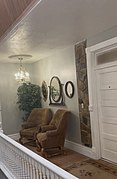The Avenues is an affluent neighborhood in Salt Lake City, Utah. It is named after the perfectly gridlike, closely laid out roads called Avenues and Streets. First surveyed in the 1850s, the Avenues became Salt Lake City's first neighborhood. Today, the Avenues neighborhood is generally considered younger, more progressive, and somewhat "artsy" when compared to other neighborhoods. Many young professionals choose to live there due to the culture and easy commute to downtown.. It is also one of the most important strongholds of the Utah Democratic Party.

Capitol Hill in Salt Lake City gets its name from the Utah State Capitol prominently overlooking downtown. In addition, Capitol Hill can be considered a neighborhood of Salt Lake City.

The Brigham Young Winter Home and Office is a historic residence and museum located in St. George, Utah. Brigham Young was the foremost Mormon pioneer and second president of the Church of Jesus Christ of Latter-day Saints, who led its members to the Utah Territory. As Young grew older, his arthritis precluded him from spending winters in the Salt Lake City region, so a winter home in St. George, in the arid Dixie region of Utah, was built for him. Young seasonally occupied the home and office from 1873 to 1876. The building was eventually deeded to the division of Utah State Parks and Recreation; it is now open as a museum where missionaries of the Church provide guided tours.
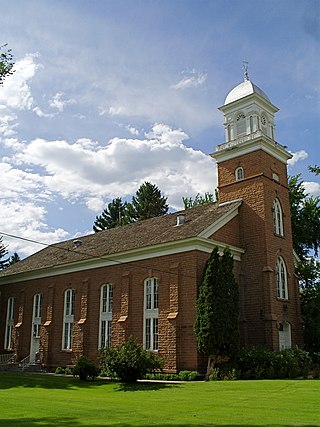
The Wasatch Stake Tabernacle in Heber City, Wasatch County, Utah, USA was completed in 1889, and served as a Latter Day Saints meetinghouse reserved for especially large congregations until 1965. The tabernacle, which has a capacity of 1,500 in its pews, was added to the National Register of Historic Places in a joint listing with the adjacent Heber Amusement Hall on December 2, 1970.
Richard Karl August Kletting was an influential architect in Utah. He designed many well-known buildings, including the Utah State Capitol, the Enos Wall Mansion, the original Salt Palace, and the original Saltair Resort Pavilion. His design for the Utah State Capitol was chosen over 40 competing designs. A number of his buildings survive and are listed on the U.S. National Register of Historic Places including many in University of Utah Circle and in the Salt Lake City Warehouse District.

The Knight–Mangum House is a historic house located in Provo, Utah, United States. It is listed on the National Register of Historic Places. The mansion was built in the old English Tudor style, completed in 1908. It was built for Mr. W. Lester Mangum and his wife Jennie Knight Mangum. Mrs. Mangum was the daughter of the famous Utah mining man, Jesse Knight. The lot was purchased for $3,500 and the home was built at a cost of about $40,000. The Mangum family was able to afford the home due to the fact that they had sold their shares in Jesse Knight's mine located in Tintic, Utah, for eight dollars a share. They had purchased the shares for only twenty cents a share, so the excess allowed them enough funds to purchase the home. The contractors for the home were the Alexandis Brothers of Provo.

The Provo Third Ward Chapel is a historic building located in Provo, Utah. It was listed on the National Register of Historic Places on April 2, 1979.
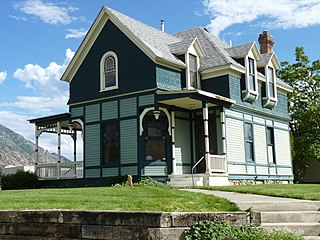
The William D. Alexander House is a historic house located in Provo, Utah. It is listed on the National Register of Historic Places. It is asserted to be the only period example of Stick Style architecture in the state of Utah.

The Simon Peter Eggertsen Sr. House is a historic house in Provo, Utah, United States. It is listed on the National Register of Historic Places. Now it has been repaired, repainted, and appointed with appropriate furnishings of the times, this home very much depicts pioneer design and craftsmanship. The Simon Peter Eggertsen Sr. House was designated to the Provo City Historic Landmarks Registry on March 7, 1996.

The Provo West Co-op is a mercantile institution and also the name of its historic building in Provo, Utah. The Early Commercial-style building was listed on the National Register of Historic Places in 1984 as "Provo West Co-op".

The Knight Block is a historic building located on South University Avenue in downtown Provo, Utah, United States. It is listed on the National Register of Historic Places.
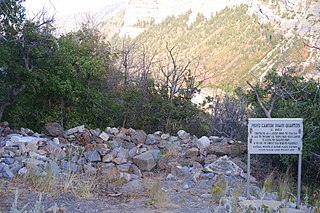
The Provo Canyon Guard Quarters is a historic building located in Provo Canyon in northeastern Utah County, Utah, United States, that is listed on the National Register of Historic Places (NRHP).

The Provo Downtown Historic District is a 25-acre (10 ha) historic area located in Provo, Utah, United States. It is listed on the National Register of Historic Places.
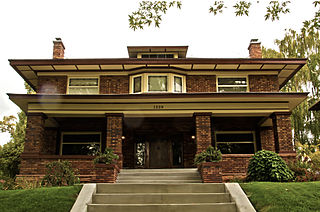
The Hyrum T. Covey House is a historic house in northeastern Salt Lake City, Utah, United States, that is located within the University Neighborhood Historic District, but is individually listed on the National Register of Historic Places (NRHP).
The Brigham City Co-op was one of the most successful cooperative enterprises of the Mormons in Utah.
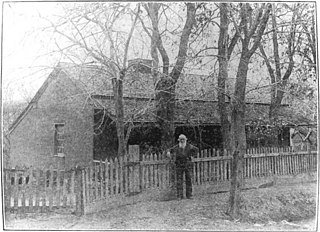
The John Steele House is the historic home of a prominent early resident of Toquerville, Utah. One of the Mormon pioneers, John Steele built the house in 1862 and lived there until his death in 1903, working as an herbal physician and serving in a number of town and county offices. Its floor plan is a rare double-parlor style.

The Thompson-Hansen House is a historic residence in Brigham City, Utah, United States, that is listed on the National Register of Historic Places.
Francis Charles Woods was a Scottish-born American architect and organ-builder who designed many buildings in Utah and Idaho. Some of his works are listed on the National Register of Historic Places (NRHP), including the Hotel Brigham and the Summit County Courthouse.

Carson Fordham Wells Jr. was an American architect who designed buildings in the state of Utah, including the NRHP-listed Kanab Library.












